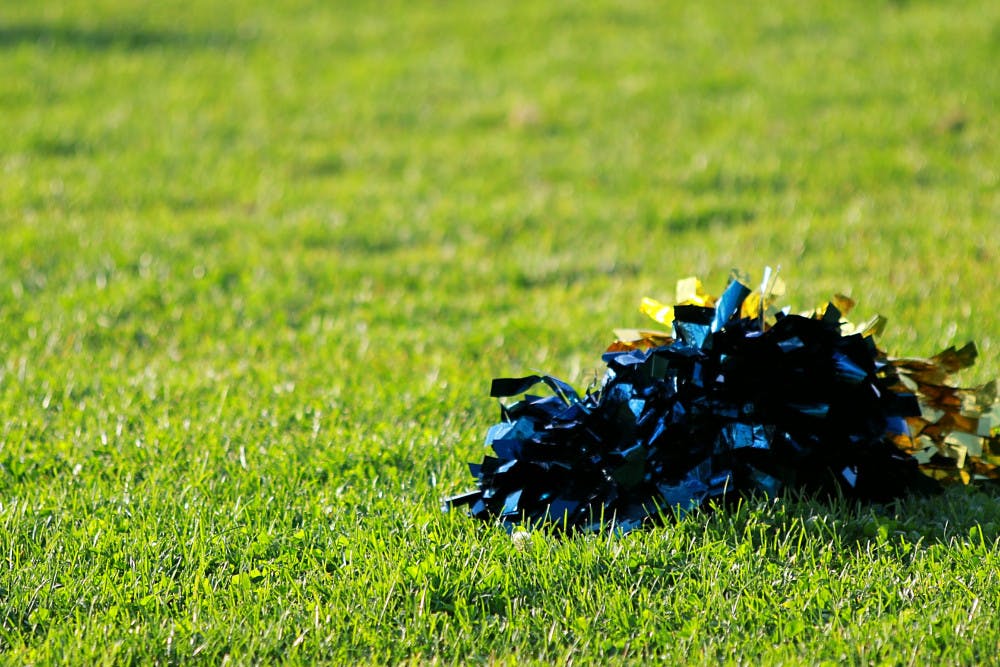By Connor Smith
Editor-in-Chief
Hoping to hear a larger variety of voices, Student Government, the Office of Student Involvement and the Inter Greek Council hosted an open forum on Tuesday, Sept. 19, in Brower Student Center room 101 to discuss potential changes to the annual Homecoming Spirit Week competition.
But flyers, Facebook posts and several mass emails weren’t enough — just under 20 students showed up, and only three said they weren’t affiliated with a Greek organization.
The students that did voice their opinions emphasized several concerns about possible changes from a group-based model to a class-based model, especially the timeframe for rolling out a new system before this October. SG agreed with their sentiment, as it decided on Wednesday, Sept. 20, to focus on improving Homecoming’s current system rather than introduce an experimental model.
With the current system, any group of students can form a team and compete in Spirit Week events. At the end of the week, a team wins the title of Spirit Week Champion and celebrates its victory at the annual Homecoming tailgate. Fraternities and sororities make up the majority of the teams, raising concerns that non-Greek organizations may feel alienated from the festivities.
Dave Conner, the director of Student Involvement, began the forum by breaking down the history and purpose of Spirit Week, which was started 29 years ago by former Director of Student Activities Tim Asher to build anticipation ahead of Homecoming.

Student Involvement and the Inter Greek Council hosted an open forum to discuss potential changes to the Homecoming Spirit Week competition (envato elements).
Conner believes Spirit Week is failing in its current state, as it struggles to get non-Greek life participants involved.
“Few people participate, and even fewer people come out to watch or appreciate,” Conner said. “We’ve created a system where at the end of the week, we have students who are probably more adversarial, as a result of losing competitions throughout the week or by the way that other groups won, than we would be if we didn’t have the week at all.”
After Conner’s opening statement, he opened the floor to questions. Several Greek life representatives believed the current model can be improved, but that a class-based model might alienate the event’s most active participants without attracting anyone new.
A representative from Phi Mu Alpha began by stating his organization believed most of them, “felt more connected to even small groups of friends than the rest of the class.” His solution was allowing anyone to make a team, which Conner explained was already allowed within the current system.
Another student asked how the class councils felt on the matter.
“The class councils have mixed emotions about it,” said Christopher Blakeley, executive president of SG and a junior civil engineering major. “There was no one in the room that said, ‘No, this is a horrible idea.’ That’s why we’ve tried to reach out to as many other constituents as possible because the class councils didn’t necessarily agree that they would fully take it on. But if the change did happen, there was no one that would be completely mad or think that it wouldn’t be feasible.”
At one point, Conner revealed that other models, such as dividing teams up by freshman floors, were also on the table, which seemed to draw the most positive response of the night.
“The class-based one is the one we’ve been looking at the most because it’s a high school model,” Blakeley said. “If freshman are coming in, it’s a model that they are used to, so it would support getting more freshmen involved in the week.”
Conner added that the class council model was brought forward because it has the potential to enhance the Senior Send-Off program.
“If we were able to come up with financial incentives for the winning team, which would be a class, that might help bolster the (Senior Send-Off) program that in years past has been trying to come up with a sustainable source of funding to keep the subsidies down for seniors that want to participate,” Conner said.
This Homecoming will be a major test for organizations that wish to keep Spirit Week’s current model. If SG determines this year was not an improvement, major changes are likely to come, according to Blakely.
“As we move forward, things are gonna change,” Blakeley said. “We’re going to see how this year goes again, but if nothing changes, we’re going to have to take a bigger step next year because we can’t continue down this path.”







